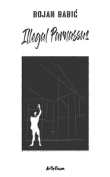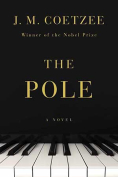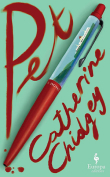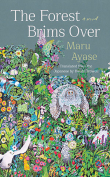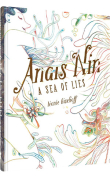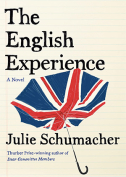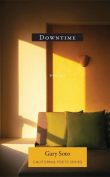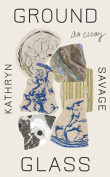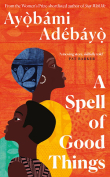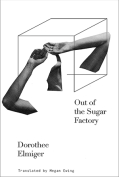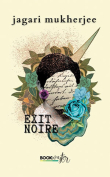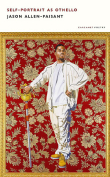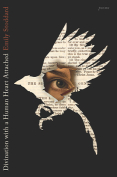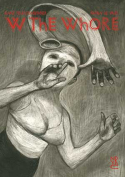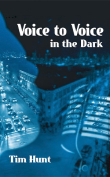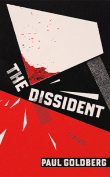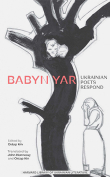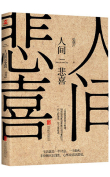The English Experience by Julie Schumacher
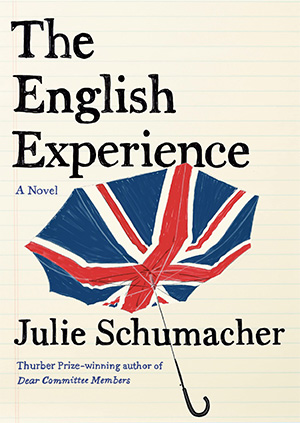 New York. Doubleday. 2023. 240 pages.
New York. Doubleday. 2023. 240 pages.
Julie Schumacher first introduced us to Jason Fitger, the middle-aged, disgruntled creative writing professor at Payne University, and writer of unusual recommendation letters, in her novel Dear Committee Members (2014). That novel expanded the genre of the campus novel and led to a sequel, The Shakespeare Requirement (2018), and the current novel, The English Experience (2023), winning various accolades for Schumacher, including the distinction of being the only woman to win the Thurber Prize for American Humor.
In the current novel, we encounter Fitger as chair of the English department, a role that he occupied in the previous novel. However, unlike the usual ordeals of fighting the upper administration as well as construction and its attendant disruptions to work, Fitger finds himself pressured by the provost to accept the assignment of leading a winter break study-abroad program to England for a group of undergraduates. While study abroad is often billed as a transformative, high-impact educational practice by most colleges, Schumacher exposes the realities of this enterprise. The majority of the undergrads taking the trip are not interested in stepping out of their comfort zone of American popular culture to engage deeply with another country, its history, or traditions. Additionally, many students are bogged down by their own psychological baggage that they bring to the trip. Instead of learning about England, we learn more about the drama of the students’ lives revealed through the writing assignments they submit to Fitger.
Schumacher is attracted to certain literary forms and loves to experiment with character development through these forms of writing. In Dear Committee Members, her chosen form was the recommendation letter. In The English Experience, she experiments with the form of the undergraduate response paper. In such assignments as choosing an object from the British Museum and writing about it, Schumacher reveals a wealth of detail about individual students and their relationships with one another, often to hilarious effect.
Fitger is plagued with many physical challenges during his trip, from a sprained ankle at the beginning to other injuries. His interactions with students also get more tortured, with arguments about length and frequency of writing assignments, as well as students breaking from set agendas to pursue their own interests; one student even leaves for solo adventures in Europe. In one interaction, Fitger accuses a student who is in fact genuinely ill of exaggerating her health condition.
For all his flaws, though, Fitger is capable of remorse and contrition, and he attempts to apologize to his group of students, only to face a major health emergency of his own at the precise moment of his apology. This brings Janet, Fitger’s ex-wife with whom he shares the custody of a dog, to England to salvage the rest of the trip. Fitger’s relationship with his ex-wife is a continuing trope through these novels. It is clear that although divorced, their relationship is far from over. One of the reasons that he has a near-death experience is the fact that Janet may be moving away to another job and taking the dog with her. At the end of this novel, Fitger’s sense of isolation is somewhat diminished by the arrival of Janet to England and the knowledge that she is still going to be at Payne, since her job offer did not materialize.
Even though the study-abroad experience did not seem to change the worldviews of any of the students, it does create a community that lasts beyond the time frame of the trip. Through social media, the group of students keep in touch with and support one another. One student begins to work at Payne after graduation. Perhaps this group experience and bonding are offered as a lasting gain of the study-abroad experience. A pair of twins, who are art majors, end up living in London permanently. However, the implicit critique of the study-abroad experience offered in the novel is that it is often an overwhelming experience for faculty, who are not adequately supported by the study-abroad office and often have to negotiate unpredictable situations without any prior training. Of course, this is great material for comedy.
Although there are many excellent writers of the campus novel, Schumacher’s contribution to this genre is unique because of her ability to use familiar genres like the recommendation letter and undergraduate response essay in surprising ways as powerful tools for character development and situational comedy. Even though she depicts many problems in higher education through the character of a somewhat out of touch, bumbling protagonist, Jason Fitger, she also imparts on him several redeeming qualities, particularly his genuine compassion for students. In a similar vein, even though students are presented as self-absorbed and only going through the motions of higher education, they often exhibit leadership and maturity; one student’s expertise in EMT skills saves Fitger’s life. They also show remarkable care for one another, helping one student facing writer’s block to finally complete the final course assignment.
This particular novel, among the others Julie Schumacher has written, ends on a more hopeful note with the image of Jason and Janet caring for a young puppy a few years after bickering over custody of their dog.
Lopamudra Basu
University of Wisconsin–Stout
